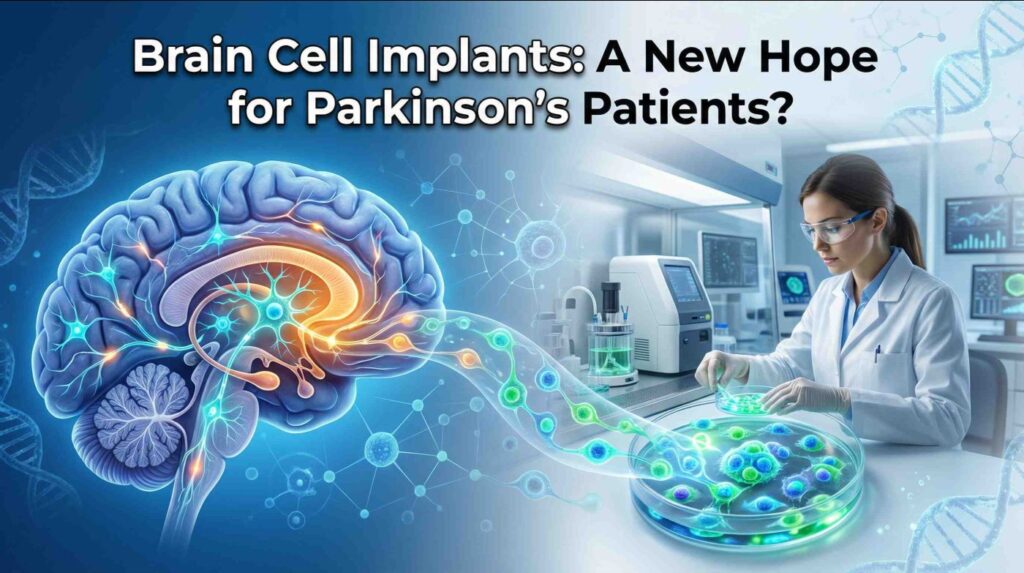Welcome to our deep dive into the transformative world of stem cell therapy for rheumatoid arthritis (RA). As many of you know, RA is not just a fleeting ailment; it’s a chronic battle that millions face daily. Conventional treatment options often bring relief, but they’re not without their limitations. That’s where the promise of stem cell approaches comes into play, offering a glimmer of hope in the management of this debilitating condition.
In this article, we’ll explore how stem cell therapies are not just a scientific curiosity but a realistic and evolving treatment option for those suffering from RA. It’s an exciting time in the field of medicine, with stem cells being at the forefront of innovative therapy for rheumatoid arthritis.
Imagine if repairing damaged tissues in your body was as simple as fixing a tear in your favorite jacket. That’s the kind of revolutionary change stem cells might bring to rheumatoid arthritis patients. But before we get into the nitty-gritty of these cell-based marvels, let’s understand a bit more about RA and why new treatment options are so crucial.
Rheumatoid Arthritis: A Brief Overview
Rheumatoid arthritis isn’t just your typical joint pain; it’s an autoimmune disorder where the body’s immune system mistakenly attacks its own tissues, particularly the joints. This results in inflammation, pain, and eventually can lead to joint deformity. It’s like having a misguided security system in your body that, instead of protecting you, turns against you.
The traditional management of rheumatoid arthritis involves a range of treatments from medications to physical therapy, all aimed at managing symptoms and improving quality of life. However, these treatments often come with side effects and sometimes aren’t enough to halt the disease’s progression.
The Need for New Approaches
This is where the concept of stem cell therapy for rheumatoid comes into the picture. Stem cells have the unique ability to develop into many different types of cells in the body. They act like a repair system, potentially regenerating damaged tissues, which is a game-changer in the treatment of rheumatoid arthritis.
Our journey through this article will take you from the basics of what stem cells are, to the cutting-edge research and clinical trials shaping the future of RA treatment. We’ll also discuss the practicalities, challenges, and ethical considerations surrounding stem cell therapies.
So, get ready to embark on an enlightening journey into the world of stem cell approaches for RA. Whether you’re a patient, a caregiver, or just someone fascinated by the potential of modern medicine, there’s something in here for you.
Let’s start by understanding what rheumatoid arthritis really is, and why it’s such a complex condition to manage.
Understanding Rheumatoid Arthritis
The Complexity of RA
Rheumatoid arthritis is more than just occasional joint pain; it’s a relentless invader that can disrupt daily life. Imagine your immune system, which is supposed to be your body’s defense force, turning against you, causing inflammation and pain in your joints. It’s like having a security system that instead of protecting your home, starts attacking it.
Symptoms and Impact
RA is characterized by symptoms such as joint pain, swelling, and stiffness, predominantly in the morning. But it’s not just a joint issue; RA can affect other organs and lead to systemic symptoms like fatigue and weight loss. Over time, untreated RA can cause joint deformity and erosion, significantly impacting the quality of life.
Current Treatments and Their Limitations
Conventional therapy for rheumatoid arthritis includes medications like NSAIDs, steroids, and disease-modifying antirheumatic drugs (DMARDs). These can be effective in managing symptoms and slowing disease progression, but they’re not a one-size-fits-all solution. Side effects, varying efficacy, and the inability to completely halt the disease highlight the need for more personalized and effective treatment options.
The Science of Stem Cells
What are Stem Cells?
At their core, stem cells are the body’s raw materials. They are unique in their ability to develop into different types of cells, a bit like a blank canvas that can transform into any masterpiece. This quality makes them invaluable in the field of regenerative medicine.
Types of Stem Cells
There are mainly two types: embryonic stem cells, which can become more than one type of cell, and adult stem cells, found in various tissues and typically differentiating into the type of tissue in which they reside.
Stem Cell Approaches in Treating RA
How Stem Cells Can Help
The potential of stem cell therapy for rheumatoid arthritis lies in their ability to regenerate damaged tissues and modulate the immune system. It’s like sending in a peacekeeping force to restore order where there’s been chaos.
Research and Case Studies
Several clinical trials and studies have shown promising results. Mesenchymal stem cells (MSCs), for instance, have demonstrated the ability to reduce inflammation and potentially repair joint damage in RA.
Advantages of Stem Cell Therapy
Stem cell treatment for RA offers benefits like reduced side effects compared to traditional drugs and the possibility of long-term remission. Imagine having a treatment that not only relieves symptoms but also addresses the root cause of the disease.
Challenges and Considerations
Navigating the Complexities
While the potential of stem cell therapy for rheumatoid is immense, there are hurdles like ethical concerns, particularly regarding embryonic stem cells, and the need for more extensive research to establish long-term safety and efficacy.
Accessibility and Cost
The current availability and cost of stem cell treatments can be prohibitive for many, making it an option that’s not yet accessible to all RA patients.
Navigating Stem Cell Treatment Options
Making Informed Choices
For those considering stem cell therapy for rheumatoid arthritis, it’s crucial to consult healthcare professionals and thoroughly research treatment options, ensuring they are credible and safe.
FAQ
Q: What are mesenchymal stem cells?
A: Mesenchymal stem cells (MSCs) are a type of adult stem cell that can differentiate into various cell types, such as bone, cartilage, and fat cells. They also have immunomodulatory properties and are being studied for their potential in treating rheumatoid arthritis (RA).
Q: How is stem cell therapy being used for rheumatoid arthritis (RA) treatment?
A: Stem cell therapy for RA involves the use of mesenchymal stem cells (MSCs) to modulate the immune response and reduce inflammation in the joints. This approach aims to alleviate RA symptoms and promote tissue repair.
Q: What is the current status of clinical trials for stem cell therapy in rheumatoid arthritis?
A: Several clinical trials are underway to evaluate the safety and efficacy of mesenchymal stem cell (MSC)-based therapies for rheumatoid arthritis. These trials aim to assess the potential of MSC therapy in improving RA symptoms and disease progression.
Q: Are there different types of stem cells used in the treatment of rheumatoid arthritis?
A: Yes, mesenchymal stem cells (MSCs) derived from various sources, such as bone marrow, adipose tissue, and umbilical cord, are being explored for their therapeutic potential in rheumatoid arthritis. Each type of MSC may have unique properties that could impact their effectiveness in RA treatment.
Q: How does mesenchymal stem cell therapy benefit rheumatoid arthritis patients?
A: Mesenchymal stem cell (MSC) therapy offers potential benefits for rheumatoid arthritis patients by modulating the immune response, reducing inflammation, and promoting tissue repair in the joints. These effects may contribute to symptom improvement and disease modification in RA.
Q: What is the role of cell transplantation in the context of rheumatoid arthritis treatment?
A: Cell transplantation, particularly using mesenchymal stem cells (MSCs), is being investigated as a potential treatment approach for rheumatoid arthritis. The transplantation of MSCs aims to modify the immune response and promote tissue repair in RA-affected joints.
Q: How are tissue-derived mesenchymal stem cells being utilized in RA therapy?
A: Tissue-derived mesenchymal stem cells are being harnessed for their potential in rheumatoid arthritis therapy. These cells, obtained from sources such as bone marrow and adipose tissue, are being evaluated for their ability to modulate the immune response and alleviate RA symptoms.
Q: What is the therapeutic potential of mesenchymal stem cells (MSCs) in the treatment of rheumatoid arthritis?
A: Mesenchymal stem cells (MSCs) hold therapeutic potential for rheumatoid arthritis by modulating the immune response, suppressing inflammation, and promoting tissue repair. These properties make MSC-based therapies an area of interest for RA treatment.
Q: How do mesenchymal stromal cells (MSCs) impact the immune system in the context of rheumatoid arthritis?
A: Mesenchymal stromal cells (MSCs) exert immunomodulatory effects in rheumatoid arthritis by regulating immune cell activity, suppressing inflammation, and promoting the generation of regulatory T cells. These properties contribute to their potential therapeutic utility in RA.
Q: What is the current research status on using stem cell-based therapies for rheumatoid arthritis?
A: Research on stem cell-based therapies for rheumatoid arthritis is ongoing, with a focus on understanding the mechanisms of action of stem cells, optimizing treatment protocols, and evaluating their effectiveness in preclinical and clinical studies. This research aims to advance the development of innovative treatments for RA.
Conclusion
Stem cell approaches for RA are an evolving and exciting area of medicine. While challenges remain, the potential for these therapies to revolutionize the management of rheumatoid arthritis is undeniable. With ongoing research and patient education, the future looks promising for those seeking new avenues in RA treatment.



